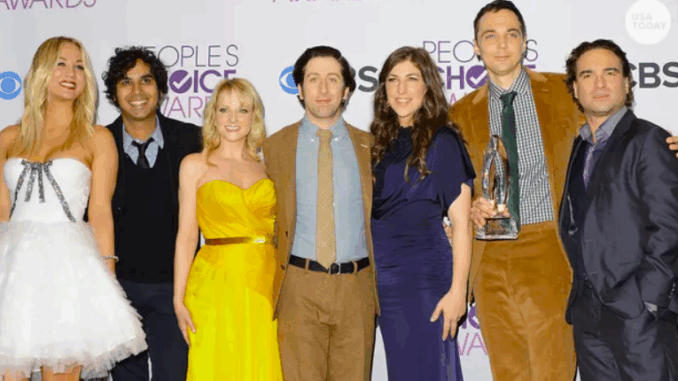
Not just an ending—an evolution
After 12 seasons, 279 episodes, and a cultural impact few sitcoms achieve, The Big Bang Theory took its final bow on May 16, 2019. But unlike many shows that stumble in their farewells, this series delivered a finale that was funny, tender, and unexpectedly profound.
It wasn’t just the end of a sitcom—it was the end of an era, and a moment of full-circle emotional resolution for its beloved characters.
Sheldon’s Nobel speech: From self to selflessness
The emotional centerpiece of the finale is, without question, Sheldon’s Nobel Prize acceptance speech. For a character defined by narcissism, control, and emotional distance, his final monologue is a breakthrough.
Instead of talking about science, he thanks his friends—by name. He acknowledges their sacrifices, their patience, and their love. And in doing so, he finally becomes something more than brilliant: he becomes human.
“I apologize if I haven’t been the friend you deserve, but I want you to know, in my way, I love you all.”
Those words hit harder than any scientific achievement. They represent 12 seasons of growth, compressed into a single, vulnerable moment.
A goodbye rooted in routine

Interestingly, the show ends not with a grand event or tragic goodbye, but with a quiet, familiar scene: the group sitting on the couch, eating takeout.
There’s no tearful montage, no dramatic parting. Just friends, food, and conversation. It’s a return to the beginning—comforting, understated, and honest. In a show about change, the final image reminds us what stayed the same: friendship.
Full-circle resolutions
Each main character finds closure that feels earned:
-
Leonard and Penny are expecting a baby, symbolizing a new chapter that once seemed impossible for them.
-
Howard and Bernadette embrace their chaos as parents, but remain united and steady.
-
Raj might not get a fairytale ending, but he finds peace in himself—his growth is quieter, but just as meaningful.
-
Amy finally steps out of Sheldon’s shadow, asserting her brilliance and independence while maintaining their partnership.
No character is left behind. No arc is abandoned. It’s a finale that respects its audience’s investment.
A legacy of laughter and love
For a show initially pitched as “two nerds meet a pretty girl,” The Big Bang Theory grew into a nuanced, emotionally rich sitcom that challenged stereotypes, celebrated intelligence, and normalized awkwardness.
It showed us that growth can be slow. That love can look weird. And that being different is not just okay—it’s often the best thing about you.
In its final hour, the show didn’t try to reinvent itself. Instead, it honored what it had always been: a story about unlikely connections that somehow made perfect sense.
Saying goodbye without letting go
The final theme song reprise, played in slowed piano tones, is a beautiful echo of where it all started. The same notes. A different feeling.
The universe didn’t need to explode in the end—it just needed to settle into place.
And that’s what The Big Bang Theory did: it didn’t end with a bang. It ended with understanding, warmth, and a quiet confidence that the story, like the science it loves, will keep expanding in the hearts of fans.